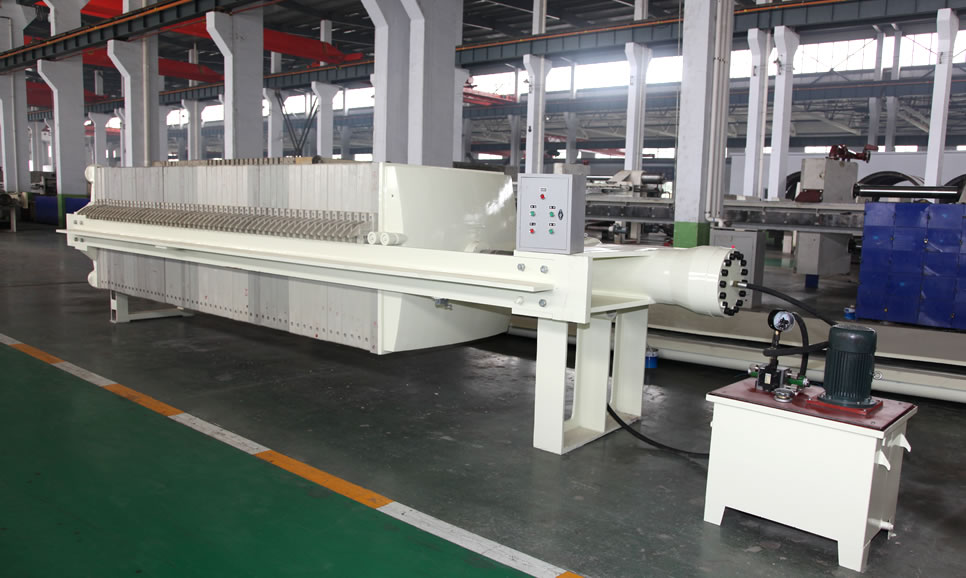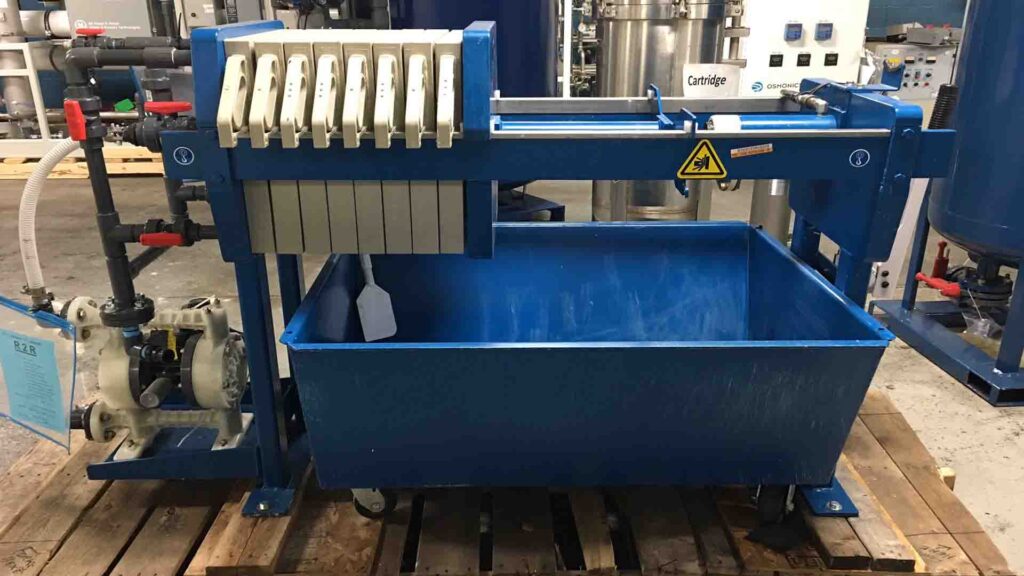Discover the power of the Hydraulic Filter Press for efficient solid-liquid separation in a wide range of industries. This article explores the benefits and applications of using a Hydraulic Filter Press, including its exceptional filtration efficiency, robust construction, and user-friendly operation. Learn how a Hydraulic Filter Press maximizes productivity, minimizes waste, and ensures superior separation results.
Introduction: Revolutionizing Solid-Liquid Separation with Hydraulic Filter Press
The Hydraulic Filter Press is a cutting-edge solution that revolutionizes solid-liquid separation processes across various industries.
Benefits of Hydraulic Filter Press
- Exceptional Filtration Efficiency: The Hydraulic Filter Press offers high filtration efficiency, ensuring maximum separation of solids and liquids and yielding a high-quality filtrate.
- Robust Construction: With its sturdy design and high-quality materials, the Hydraulic Filter Press provides durability and longevity, even in demanding operating conditions.
- User-Friendly Operation: The user-friendly interface and intuitive controls of the Hydraulic Filter Press make it easy to operate, minimizing downtime and maximizing productivity.
- Customized Solutions: The Hydraulic Filter Press offers a range of customization options, allowing you to tailor the equipment to your specific application requirements.
Applications of Hydraulic Filter Press
- Mining and Metallurgy: The Hydraulic Filter Press is widely used in the mining and metallurgy industry for dewatering slurry, recovering valuable minerals, and minimizing waste.
- Chemical Industry: The chemical industry utilizes the Hydraulic Filter Press for separating solids from liquid solutions, purifying chemicals, and achieving precise separation results.
- Municipal Wastewater Treatment: The Hydraulic Filter Press plays a vital role in municipal wastewater treatment plants, efficiently separating solids from wastewater and producing clean, reusable water.
- Food and Beverage: In the food and beverage industry, the Hydraulic Filter Press ensures the separation of solids from liquids, such as clarifying juices, filtering edible oils, and dewatering food processing byproducts.
Key Considerations When Selecting a Hydraulic Filter Press
- Filter Plate Design: Consider the different types of filter plate designs available, such as recessed chamber plates or membrane plates, to meet your specific filtration requirements.
- Filtration Area: Evaluate the required filtration area based on the volume of solids and liquids to be processed, ensuring optimal filtration efficiency.
- Automation Options: Determine whether automation features, such as automatic plate shifting or cake discharge, are necessary to streamline operations and improve efficiency.
Example of Hydraulic Filter Press Application
In a mining operation, the Hydraulic Filter Press is utilized for dewatering slurry and recovering valuable minerals. The filter press efficiently separates the solids from the slurry, producing a concentrated cake with a high moisture reduction. This allows the mining company to minimize waste, increase the recovery of valuable minerals, and optimize their operations.

Conclusion: Unlocking Efficiency with Hydraulic Filter Press
The Hydraulic Filter Press is a game-changer in the field of solid-liquid separation, offering exceptional filtration efficiency, robust construction, and user-friendly operation. By selecting the appropriate Hydraulic Filter Press and considering key factors such as filter plate design and filtration area, you can maximize efficiency, reduce waste, and achieve superior separation results in your industry.
In summary, the Hydraulic Filter Press provides a reliable and efficient solution for solid-liquid separation. With its exceptional filtration efficiency, durable construction, and customizable options, the Hydraulic Filter Press enhances productivity and ensures high-quality separation in industries ranging from mining and metallurgy to wastewater treatment and food processing.
